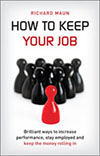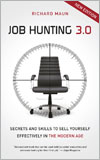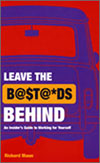better business blog
Tips and stories to add value to you and your organisation

Asking For Help
When young children are at school their teachers tend to work hard to make them feel safe and secure. School can be a big scary place when you’re little and so it’s natural for the big people to take good care of the little people.
Of course as these young children grow older they are encouraged to be independent and resilient. Important exams come and go and the little children turn into big young adults and have to make their way in the world, perhaps at university, or at work.
At what point do they stop asking for help I wonder? When do they learn that ‘help’ implies weakness in some way?
I ask this because I’ve worked with many adults in organisations who find asking for help too difficult, until they reach a point of extreme stress and a coach, maybe me, is hired to support them.
As we grow up into adults our younger selves remain inside us. In Transactional Analysis terms we describe this as the Child Ego State. When we are said to be ‘in our Child’ we might be playful or rebellious, creative or socially responsible. Our Child is the little us who was and who now sparks useful or desctructive behaviours in us as adults.
What is interesting to me is that little us did learn to ask for help at one point in our lives and that this helpful trait can be forgotten.
As adults we all have the capacity to ask for help, or support, or comfort, and yet often we don’t do this. I wonder that our journey towards independence has covered over this ability, or perhaps one day we did ask and were rejected and made a decision never to ask again.
I have news!
The past isn’t the present. Not earth shattering news I will admit, but true none the less. Asking for help is the sign of a grounded, thoughtful, responsive grown up.
Seeking support is strength.
It enables those around us to do the same, because our efforts give them permission to find their voice when needed.
Recently we had a busy week at home and I asked the children to help out round the house, instead of me being super-dad and sorting everything. Not only did we share the workload, but the kids enjoyed it and liked the sense of responsibility and I was happy to pay them in chocolate eclairs. I do a very good rate of eclair per hour!
Joking aside, what I learned for myself was that asking for help can start in small easy ways. I will ask again in the future and keep up the momentum from solo work to team work.
Who could you ask for help this week? What would be one small task, or one thorny problem that would be helpful to be supported with?
The child inside can relearn the lessons of the past in order to support the person we are today.
Have fun!
Next week: Stern Parking For Beginners
e-publishing
Click icon for details


recent posts
browse archive
books
Click cover to view details on Amazon

How to Keep Your Job
Brilliant ways to increase performance, stay employed and keep the money rolling in
Published 2011 Marshall Cavendish
208pp

Job Hunting 3.0
Secrets and skills to sell yourself effectively in the Modern Age
Published 2010 Marshall Cavendish
260pp

 RSS
RSS


